The primary tenure-track faculty, research-track faculty and secondary faculty in the Saint Louis University Department of Molecular Microbiology and Immunology oversee active independent research programs funded by the National Institutes of Health, philanthropic research foundations and industry.
SLU's faculty members serve on both national peer-review panels and journal editorial boards. They are frequently invited to report on their work at other institutions and publish research in highly visible scientific journals.
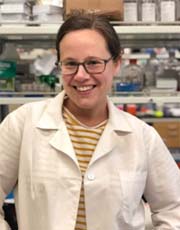
Elise Alspach, Ph.D.
Assistant professor
Ph.D.: Washington University in St. Louis
Postdoctoral training: Washington University in St. Louis
Research interests: The Alspach Lab seeks to gain a better understanding of what does and does not generate a successful anti-tumor immune response. Only 20-40% of patients across tumor types benefit from cancer immunotherapies, and more knowledge about what generates resistance in most patients will help to expand the efficacy of life-saving immunotherapies to more people. To do this, we are studying the impact of basic variables, including aging and biologic sex, on tumor-specific T-cell responses and T-cell-driven tumor evolution.
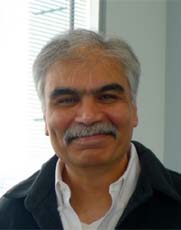
Rajeev Aurora, Ph.D.
Associate professor
Ph.D.: Cold Spring Harbor Laboratory/SUNY at Stony Brook
Postdoctoral fellowship: Johns Hopkins University School of Medicine
Research interests: Our long-term goal is to understand the mechanisms that lead to chronic inflammation. Acute inflammation is a healthy response to infection or trauma. In contrast, chronic inflammation leads to, or exacerbates, most disease states. The inflammation process has three phases: an initiation, maintenance and resolution phase. Either loss of tolerance or lack of resolution of acute inflammation leads to chronic activation of the immune system. To understand the genetic, epigenetic and environmental factors, we use both mouse models and human studies employing computational and laboratory tools. Our studies fall into three areas. Osteoimmunology is the emerging field of the crosstalk between the immune and skeletal systems, and we have also developed new therapies to restore resorbed bone. Our laboratory is also interested in how the microbiota modulates the immune system. An important measure of biological fitness is robustness, the ability to respond to and survive in diverse environmental conditions. A feature of robustness is the ability to maintain homeostasis at the biochemical, cellular, organ and organismal levels. Maintaining homeostasis at each of these levels requires a complex network of (regulatory) interactions that are arranged as positive and negative feedback loops.
Our laboratory is interested in how the regulatory loops are used in biology in general, and specifically in immune response to infections to restore homeostasis and in response to vaccinations. For instance, chronic inflammation arises due to genetic and epigenetic dysfunction(s) caused by environmental insults where the immune system is unable to restore homeostasis. As different chronic inflammatory diseases may arise in individuals from various dysfunctions, we are also using tools of population biology to understand the contribution of genetics, epigenetics and environmental factors to disease states.
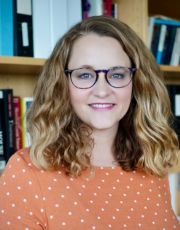
Melissa Berrien-Elliott, Ph.D.
Assistant professor
Ph.D.: Saint Louis University
Postdoctoral training: Washington University in St. Louis
Research interests: The Berrien-Elliott lab focuses on understanding how we can use natural killer (NK) cells to treat cancer and chronic viral infections. NK cells, in contrast to cytotoxic T cells, are innate lymphocytes that can “naturally” kill malignant and infected cells without prior sensitization. Recent work has identified that NK cells display enhanced, memory-like functionality after brief cytokine activation. These cytokine-induced memory-like (ML) NK cells can be engineered and have a superior safety profile compared to standard-of-care CAR-T cell therapies. Our lab uses preclinical and translational approaches to understand the cross-talk between ML NK cell therapy and the immune/tumor microenvironment in these distinct contexts and to explore new approaches for improving patient responses to NK cell therapy.
We are always looking for curious, enthusiastic individuals who are interested in exploring the fascinating world of NK cell therapy!
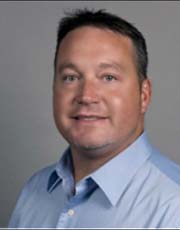
Richard J. DiPaolo, Ph.D.
Professor and interim chair
Ph.D.: Washington University School of Medicine
Postdoctoral fellowship: NIAID, National Institutes of Health (NIH)
Research interests: The lab studies how immune cells and cytokines contribute to diseases such as autoimmunity and cancer. We use this information to develop and test new strategies and immunotherapeutic approaches to treat autoimmunity and prevent cancer. The cell types we have focused on are CD4+ T regulatory cells (Tregs) and autoreactive CD4+ T cells. The diseases we have tested for new immunotherapies include Type 1 diabetes, autoimmune gastritis and gastric cancer. The lab also uses deep sequencing of T-cell receptor sequences in biological samples to develop diagnostics for infections, vaccines and diseases. We use several cutting-edge technologies, including: preclinical mouse models of human diseases, 3-D organoid cultures, whole exome and single-cell RNA sequencing, and advance bioinformatics to better understand the pathophysiology of autoimmune diseases, cancers, infections and vaccines.
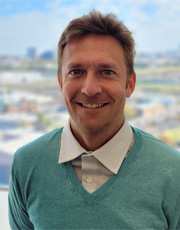
Stephen Ferris, Ph.D.
Assistant professor
Ph.D.: Washington University in St. Louis
Postdoctoral training: Washington University in St. Louis
Our lab focuses on understanding the fundamental processes that drive immune responses in the context of self-antigens. We specifically research how an immune response is generated against cancer self "neoantigens" and why these immune responses fail to reject tumors in many patients, as well as investigating aberrant immune responses generated during autoimmune conditions such as Type 1 Diabetes. We use multiple models of genetic manipulation including transgenic and knock out mouse models, CRISPR-targeted genetic manipulation, overexpression of desired genes, and flow cytometry to investigate basic immune responses to self-antigens in vivo and in vitro, with the goal of optimizing cancer immune responses and inhibiting autoimmunity.
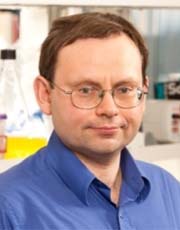
Daniel Hawiger, M.D., Ph.D.
Professor
M.D.: Vienna University
Ph.D.: Rockefeller University
Postdoctoral training: Yale University
Research interests: Conventional dendritic cells (cDC) have crucial roles in priming effector T cells but cDC also have critical tolerogenic functions in the peripheral immune system, extending the maintenance of immune homeostasis and blocking autoimmune responses. However, broad tolerogenic functions of cDC, including induction of peripheral regulatory T cells (pTreg cells), could hamper protective immune responses against some pathogens and tumors, whereas an inadvertent activation of autoregressive T cells in the presence of pro-inflammatory stimuli could lead to autoimmunity. Therefore, the maintenance of immune homeostasis by cDC requires specific mechanisms that actively adjust T cell functions to promote tolerance while preserving an overall high plasticity of the immune responses. To clarify the mechanisms by which cDC governs the outcomes of immune activation in the context of autoimmune disorders such as multiple sclerosis (MS) and other immune responses, studies in my laboratory are focused on the roles of specialized subsets of cDC and their specific functions in tolerance and immunity as well as the relevant molecular mechanisms induced by such cDC in T cells. Our work has elucidated the functions of specific immunomodulatory pathways, cell signaling regulators and transcription factors that establish specific outcomes of the interactions between T cells and cDC.
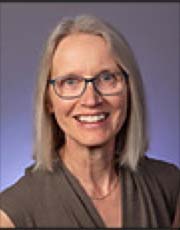
Lynda A. Morrison, Ph.D.
Professor
Ph.D.: Washington University in St. Louis
Postdoctoral fellowships: Harvard Medical School
Research interests: Our lab focuses primarily on drug development, specifically on novel small-molecule inhibitors of herpes simplex virus replication. We are investigating their structure-activity relationships, their pharmacological properties, and, for the most promising molecules, their capacity to inhibit HSV-mediated disease in a mouse model. We are also working to determine the mechanism by which these molecules inhibit virus replication. The lab carries out this translational research through collaborations with scientists at SLU and other universities across the county.
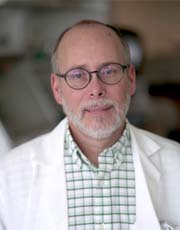
John Tavis, Ph.D.
Professor
Ph.D.: Pennsylvania State University
Postdoctoral fellowship: University of California, San Francisco
Research interests: My lab has studied Hepatitis B Virus replication mechanisms and enzymology for more than 25 years. Currently, we have two broad sets of projects focused on the ribonuclease H activity of the multifunctional HBV polymerase protein that has priming, reverse transcriptase, and RNase H domains. The first set of projects are basic science, where we study the contributions of RNase H to HBV biology, characterizing the enzymology of RNase H degradation of the viral pre-genomic RNA during viral replication and conducting in silico and physical analyses of the RNase H’s structure. The second set of projects are drug discovery efforts targeting the RNase H. We work closely with medicinal chemistry collaborators in these translational studies to identify and characterize inhibitors of the enzyme. We have discovered all but a few of the more than 250 known inhibitors of the enzyme, with the goal of developing novel drugs to treat chronic HBV infections in the 250 million people worldwide suffering from hepatitis B.
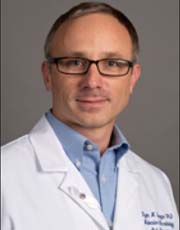
Ryan Teague, Ph.D.
Professor
Ph.D.: University of Kansas
Postdoctoral fellowship: University of Washington and Fred Hutchinson Cancer Research Center
Research interest: Cancer immunology. My lab investigates how the immune system detects and responds to cancer with the goal of exploiting these processes for the development of novel immunotherapy approaches. Ongoing projects in the lab are designed to identify barriers to successful cancer immunotherapy and develop strategies to overcome these barriers for improved patient outcomes. The lab performs translational research linking basic science at the bench top to clinical human research through collaborations with scientists and physicians at SLU and other universities around the county.
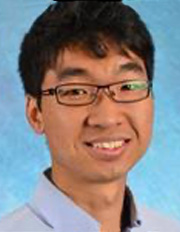
Long Ping Victor "Vic" Tse, Ph.D.
Assistant professor
Ph.D.: Cornell University
Postdoctoral fellowship: University of North Carolina, Chapel Hill
Research interest: Virology is one of the most exciting fields in biology. From the COVID-19 pandemic to viral-based gene and cell therapies, in the Tse Lab, we seek to understand viral pathogenesis and transmission at the molecular level to develop new guidelines, vaccines, and antivirals for public health measures. We also focus on the engineering of pathogenic viruses into harmless nanoparticles for medical use in gene therapy and vaccine development.
Research Faculty
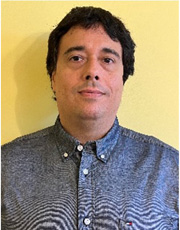
Javier A. Carrero, Ph.D.
Assistant research professor
Ph.D.: Washington University in St. Louis
Postdoctoral training: Washington University in St. Louis
Research interests: Carrero’s interest is to understand how inflammation triggered
by infection or autoimmunity impacts the development of cancer. Multiple cancers have
been causally linked to chronic infectious diseases and/or autoimmune syndromes. By
evaluating two models of stomach inflammation: Helicobacter pylori and autoimmune
gastritis, we seek to identify mechanisms of gastric cancer induction that may lead
to better diagnostics and therapeutics.
View publications
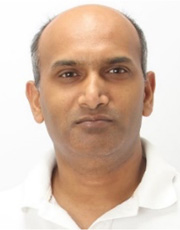
Krishan Pandey, Ph.D.
Associate Research Professor
Ph.D.: Institute of Microbial Technology (JNU Hew Delhi, India)
Postdoctoral training: Saint Louis University
Research interests: Retroviruses like human immuno deficiency virus (HIV) insert their genome in host cell DNA, thus making the infection permanent. The insertion of viral genome into the host DNA is mediated by a viral protein Integrase. The research in our laboratory focuses on understanding the mechanisms of retroviral integration and how HIV-1 integrase inhibitors block integration. We utilize HIV-1, HIV-2, Rous sarcoma virus (RSV) and other retroviral systems to gain insights into the integrase-DNA complex (intasome) assemblies and identify novel drug targets. We employ complementary approaches including biochemistry, biophysics, molecular biology, structural biology and virology.
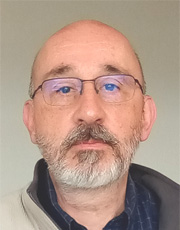
Karoly Toth
Research Professor
DVM: University of Veterinary Sciences, Hungary
Postdoctoral training: Saint Louis University
Research Interests: The main focus of the Toth Lab is to identify efficacious anti-adenoviral drugs. While causing mild, self-limiting infections in healthy adults, adenoviruses can cause deadly disseminated disease in immunocompromised patients. Presently, there is no FDA-approved drug to treat the infection; thus, there is an urgent and unmet medical need for a safe and effective anti-adenoviral drug. Collaborating with academic and industrial partners, we have been testing the in vitro and in vivo efficacy of candidate compounds. Some of the compounds we tested proved to be highly active, and some of these have reached clinical trials. Besides anti-adenoviral drugs, we have also been working with our collaborators to find compounds that inhibit the replication of SARS-CoV-2. Lastly, we have a project aiming at identifying host factors for norovirus infections.
Secondary Faculty
Daniel F. Hoft, M.D., Ph.D.
Professor, Department of Internal Medicine, Division of Infectious Diseases, Allergy,
and Immunology
Jacki Kornbluth, Ph.D.
Professor, Department of Pathology
Jianguo Liu, M.D., Ph.D.
Professor, Department of Internal Medicine, Division of Infectious Diseases, Allergy,
and Immunology
Laurie Shornick, Ph.D.
Professor, Department of Biology
View Faculty Profile
Ranjit Ray, Ph.D.
Professor, Department of Internal Medicine, Division of Infectious Diseases, Allergy,
and Immunology
View Faculty Profile
Ratna Ray, Ph.D.
Professor, Department of Pathology
View Faculty Profile
Sarah George, M.D.
Associate Professor, Department of Internal Medicine, Division of Infectious Diseases,
Allergy, and Immunology
Terry L. Moore, M.D.
Professor, Department of Internal Medicine, Division of Rheumatology
Uthayashanker Ezekiel, Ph.D.
Professor, Clinical Health Sciences
View Faculty Profile